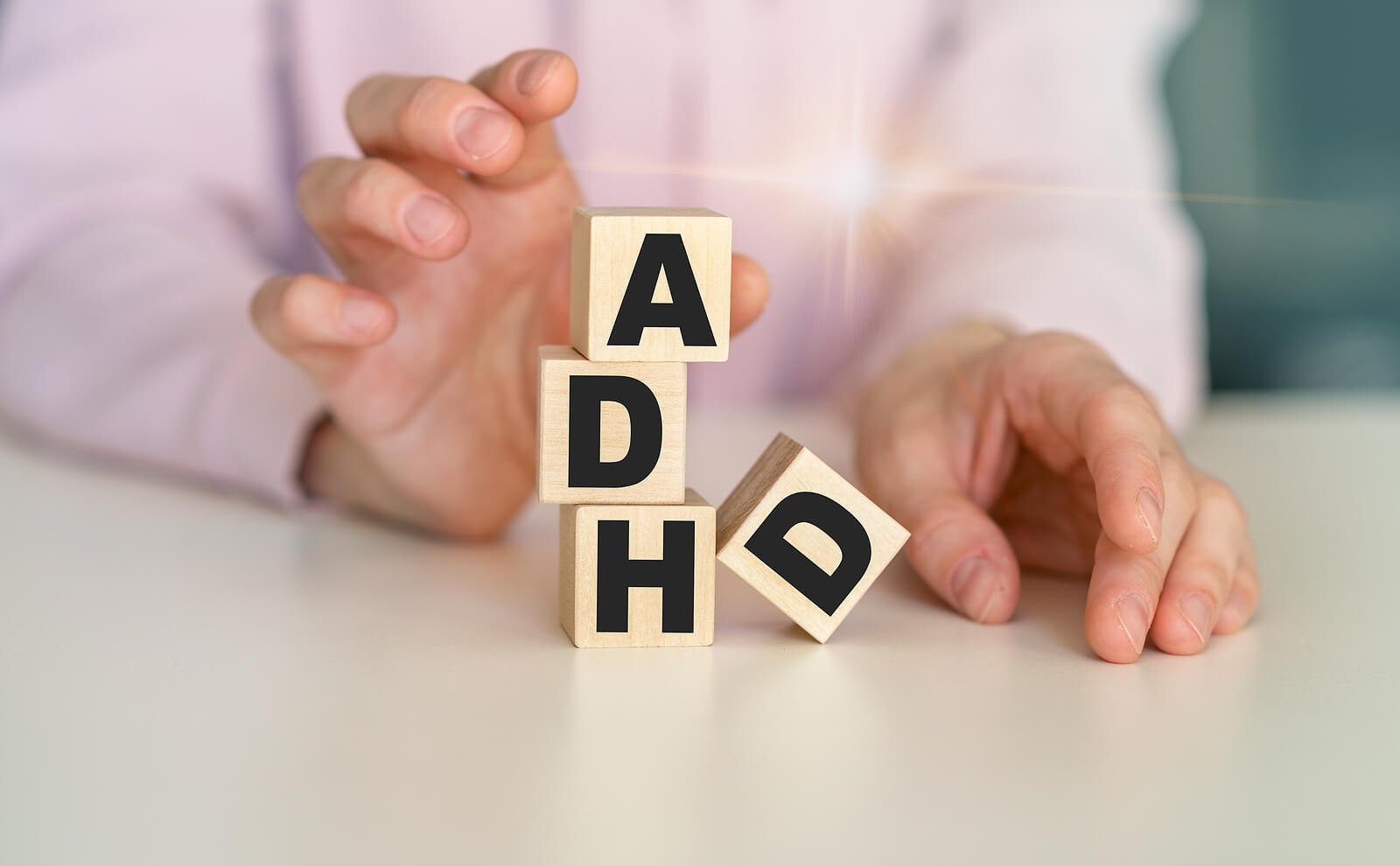
Supporting Your Child with ADHD – A 3-Pronged Approach
by Rebecca MurrayMetzger, Psy.D.
Attention Deficit Hyperactivity Disorder, or ADHD, is a common neurodevelopmental condition that affects some people’s ability to focus, make decisions, and control themselves. Join Mind Matters as our Psychologists discuss why it’s crucial to understand that ADHD isn’t just about being hyperactive or easily distracted. It’s a complex condition that can impact a child’s life in various ways.
ADHD comes in three main types:
- Some people with ADHD have trouble staying focused, resisting distraction, getting started on tasks, organizing their ideas and/or planning what they have to do. (We call this Inattentive Presentation — the most common subtype).
- Other people with ADHD can be attentive and organized, but they think and move so quickly that they make more mistakes. Or, they might do or say something they regret later. (We call this Hyperactive-Impulsive presentation).
- Still other people with ADHD struggle with all these things. (This we call Combined Presentation).
ADHD is more common than you might think, affecting around 5-10% of children worldwide. It’s not something children outgrow. If left untreated, it can lead to difficulties in school, relationships, and overall well-being. However, there’s good news – with the right support and strategies, children with ADHD can thrive. In this blog post, we’ll explore a three-pronged approach to help you support your child with ADHD effectively.
1. Adapting the Child’s Environment
At Home:
Supporting a child with ADHD often begins at home. Establishing consistent routines can provide a sense of stability and predictability that can be particularly beneficial. Try creating a visual schedule to help your child understand and follow daily routines. Encourage breaks during homework or chores to prevent frustration and burnout.
Changing parenting strategies is also crucial. While positive reinforcement, clear communication, and setting realistic expectations helps most children, focusing intently on these approaches can make a significant difference for a child with ADHD. Praising and rewarding your child for trying out new skills and accepting support tends motivates them much more than punishment. Additionally, parents should educate themselves about ADHD so they can better understand and empathize with their child. Some of our favorite resources include:
- Additude Podcast and Online Magazine (scientifically sound and parent-friendly information about ADHD and related issues)
- CHADD: Children and Adults with ADHD (an excellent source of information as well as a connection to local support groups for parents of kids with ADHD)
- How To ADHD (a YouTuber who provides scientifically sound and highly personalized tips about living with ADHD based on her real-life experience)
At School:
Collaboration with your child’s school is essential. Work with teachers to implement accommodations like extended time for assignments and tests, preferential seating, or a quiet space for work. Multi-sensory teaching methods, such as using visual aids and hands-on activities, can help engage your child’s attention and learning style. Combining clear and consistent expectations, with some flexibility about the way kids meet those expectations, also helps a lot.
2. Teaching the Child About Their Brain Style
Educating your child about their ADHD can empower them to take control of their actions and make positive choices. Explain that their brain works a bit differently but has unique strengths. Some tools and strategies that can be helpful include:
- Mindfulness and relaxation techniques to manage impulsivity and anxiety.
- Breaking tasks into smaller, manageable steps to prevent feeling overwhelmed.
- Using a timer to help with time management and staying on track.
- Creating a designated study or work area with minimal distractions.
- Using fun, relaxing activities as a motivator for finishing non-preferred tasks
Encourage your child to explore their interests and hobbies. Many children with ADHD excel in creative pursuits, sports, or hands-on activities. Spending time doing what they enjoy and excel at can help children with ADHD learn how to set goals and work towards them. Their success in these areas also helps them feel more confident and hopeful when doing something more challenging for them.
3. Physical Interventions
Improving your child’s physical well-being can have a significant impact on their ADHD symptoms. Ensure they get enough sleep, as sleep deprivation makes it harder to concentrate and remember information. Stick to a consistent sleep schedule to help regulate your child’s sleep patterns.
Nutrition also plays a role; a balanced diet with plenty of fruits, vegetables, whole grains and protein can help stabilize mood and energy levels. Reducing sugar and processed foods may help as well. Sometimes children with ADHD are drawn towards unhealthy foods. Or they may be picky eaters, and not eat as diverse a diet as needed. In these cases, it can be helpful to work with a child nutritionist, to find inventive ways to incorporate more nutrition into your child’s day.
Regular exercise is crucial, as it helps release excess energy and improves focus. Consider activities like swimming, martial arts, or team sports that allow your child to burn off energy in a structured setting.
In some cases, medication prescribed by a healthcare professional may be beneficial in managing ADHD symptoms. Consult with a pediatrician or psychiatrist to explore this option.
The Role of Psychoeducational and Neuropsychological Testing in Treating ADHD
Often, ADHD can be identified just by interviewing the child and the adults involved in their lives (e.g. parents, caregivers and teachers). However, many other issues can also cause or exaggerate some of the symptoms of ADHD. This includes anxiety, sleep problems, learning challenges, or even a “poor fit” environment (like a noisy classroom or a stressful home environment). To that end, direct testing for ADHD helps clarify if the attention problems are related to these other types of challenges. Additionally, a psychoeducational or neuropsychological evaluation can be a valuable resource for understanding your child’s specific profile and needs.
Conclusion
Supporting a child with ADHD involves a three-pronged approach: adapting their environment, teaching them about their brain style, and considering physical interventions. Remember, every child is unique. So it may take some trial and error to find the strategies that work best for your child. A neurodiversity affirming provider can be an important ally in this process. You may even want to consider ADHD testing to better understand your child’s profile. By embracing this multifaceted approach and seeking professional guidance when necessary, you can help your child with ADHD thrive and reach their full potential.
Get a Neurodiversity Affirming Evaluation for Your Child in Berkeley or San Francisco, CA
Psychoeducational and Neuropsychological tests are administered by a dedicated Licensed Psychologist (or Licensed Educational Psychologist). The analysis you receive from Mind Matters helps you tailor their accommodations and interventions to your child’s needs. This test can pave the path to success for your child. Follow these steps to get started:
- Reach out to our intake coordinator to ask questions and find the best evaluator for your child.
- Schedule your child’s evaluation at our Berkeley office or our San Francisco office.
- Understand your child better, and learn how to help them thrive.
Other Services We Offer in the San Francisco Bay Area
In addition to psychoeducational and neuropsychological evaluations, we provide neurodevelopmental screenings. Both of these services include autism testing, dyslexia testing and ADHD testing. We attend school meetings for our clients too. If you aren’t sure what you’re looking for, we offer parent guidance sessions to help you decide on next steps. If you want to know how we can help support you and your neurodivergent child reach out to us.





